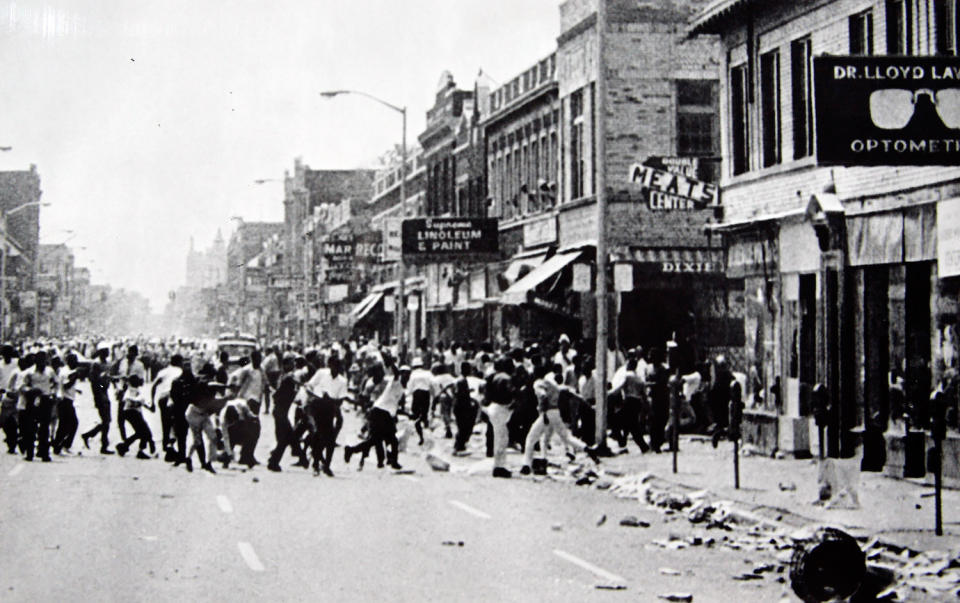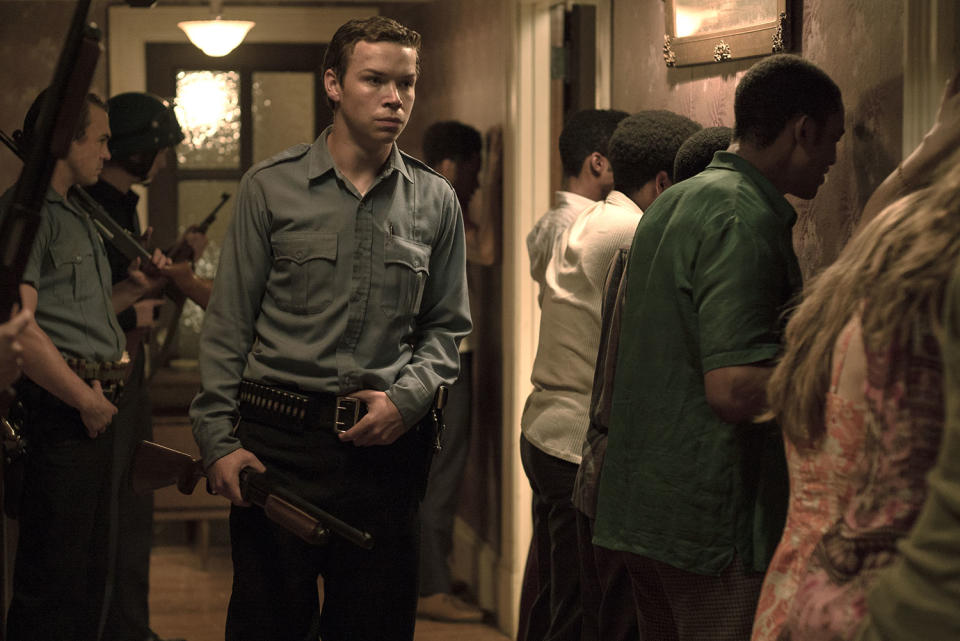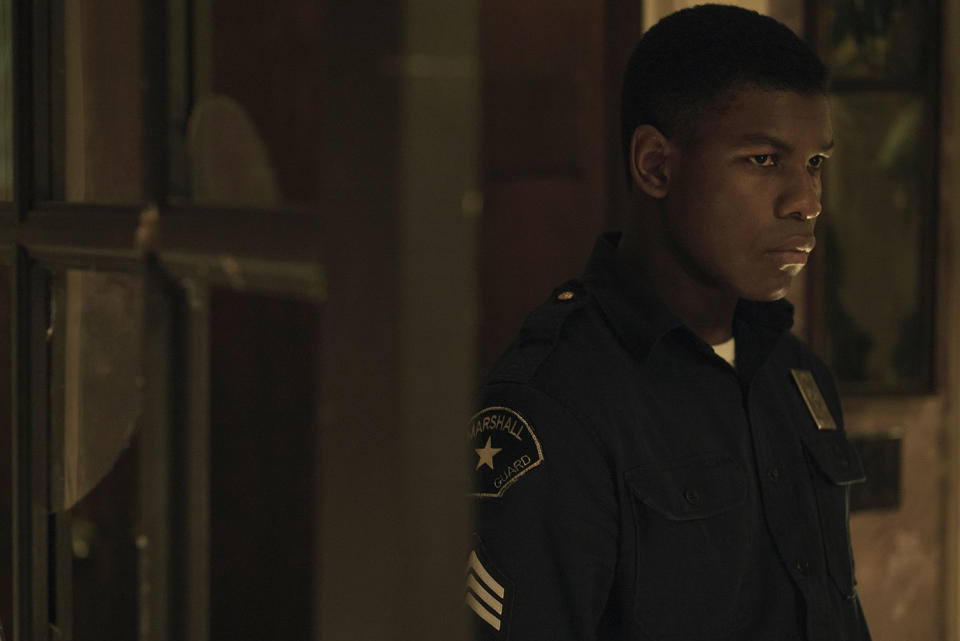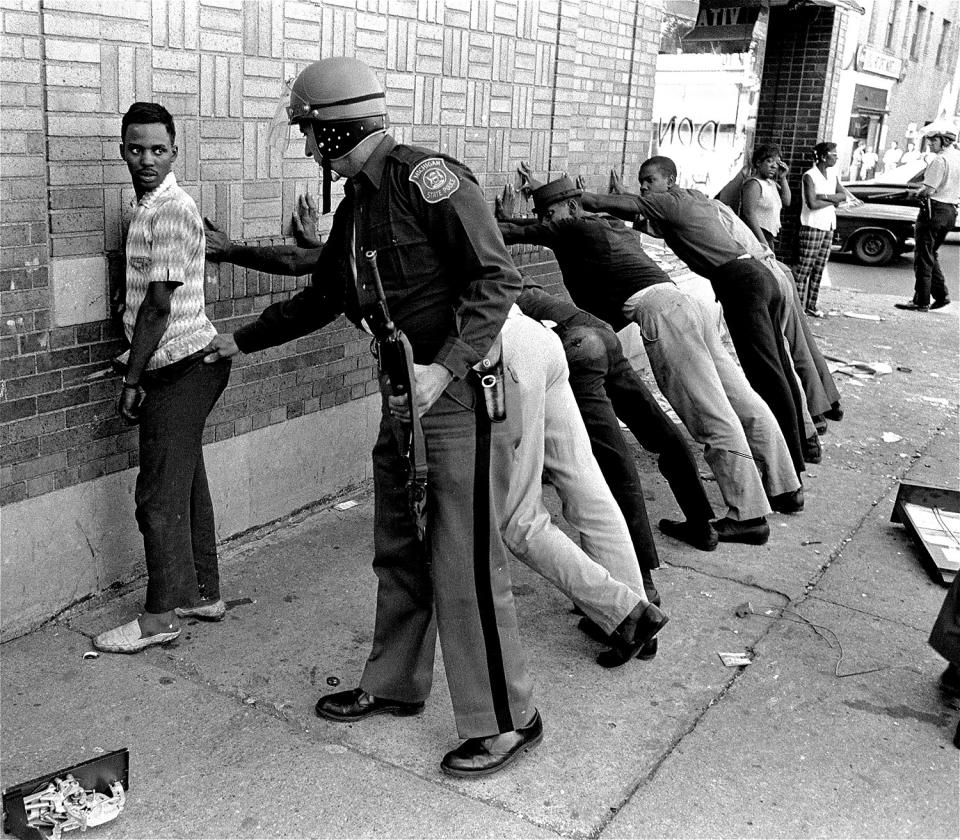Horror at the Algiers: Inside the Real-Life Story Dramatized in Kathryn Bigelow's Detroit
A half-century on, Detroit bears the scars of racial violence that racked it and other cities in the late 1960s.
Tensions boiled over in the summer of 1967 when Detroit Police raided an African-American speakeasy in the dead of the night on July 23. After the officers arrested all civilians found at the scene, the city began to riot in defiance, leading to a week of unrest and dozens of deaths.
Kathryn Bigelow’s new film Detroit dramatizes an incident at the Algiers Motel that occurred on the third night of the riots in which police and National Guardsmen, claiming to be looking for snipers, killed three black youths and beat and humiliated several other individuals.
“The Algiers Motel is a real American tragedy,” Bigelow, 65, says in a special featurette about the film. “One of the most most important aspects in preparing this movie was to spend time with the people who actually lived this incident.”

The scene at the riots
Bigelow worked closely with Julie Delaney, one of the two white women brutalized in the incident, and asked for her input when it came to the events depicted.
“Kathryn had me on set every day,” Delaney tells PEOPLE. “I met her first in Detroit probably six months before shooting the film and she said, ‘You’ll be with me and you’ll tell me when you can if I’m not doing it correctly, if something needs to be changed.’ ”
The close relationship with the survivors led to the realistic feel of the movie, including a 40-minute heart-wrenching stretch that dramatizes the horrors the victims went through in the motel. Lined up against a wall, the guests endured an intimidation tactic by the police in which they pulled people off the lineup into rooms to trick the others into talking.

The movie’s version of the lineup with Will Polter playing one of the officers
Those are the moments that still haunt Delaney, who was 18 at the time.
“The moment that has stuck with me the most is the police taking people one by one in rooms and hearing them beg for their lives,” Delaney says of the intimidation tactic. “All I kept hearing was the same three voices for hours as our faces were against the wall. That’s where our clothes were ripped off.”
The three voices belonged to officers Ronald August and Robert Paille and patrolman David Senak. Melvin Dismukes, an African-American private security guard played by John Boyega in the film, joined them at the Algiers to try and calm the situation — but he was helpless when it came to the terror the victims endured.
“I was feeling anger, I had no authority to stop what was going on there in the lobby, but I intervened to help them out,” Dismukes says in the featurette.

Boyega as Dismukes
Boyega says Dismukes walked into a situation where there was nothing he could do, but he still tried to save the victims.
“Melvin Dismukes tried to do good and was set with a task that he wasn’t prepared for,” Boyega says in the featurette. “He tried to calm the police down and at the same time tried to make sure these boys cooperated. He was an unspoken guardian angel to those boys that were there.”
In the end, the officers killed two other teenagers along with Cooper — Aubrey Pollard and Fred Temple. A police officer was acquitted in one death, and he and two others were acquitted of conspiracy.

The people who lived through it still bear the scars of that night.
“I don’t know if I ever dealt with it until we made the movie,” Delaney admits. “I never really dealt with it — I just tried to plug away with my life with this always in the back of my mind. And since I’ve seen the movie, it’s made me wonder if that event caused the problems that I had in my life. I’ve been in AA 22 years, was it the reason I drank? Did I have PTSD?”
50 years later, the individuals who were terrorized at the Algiers say they are glad their story is finally being told.
“I really feel that it’s very important to tell the story,” one of the survivors, Larry Reed, says in another featurette. “What we’ve been through — I don’t want this to be forgotten.”
Detroit is now playing in theaters.

